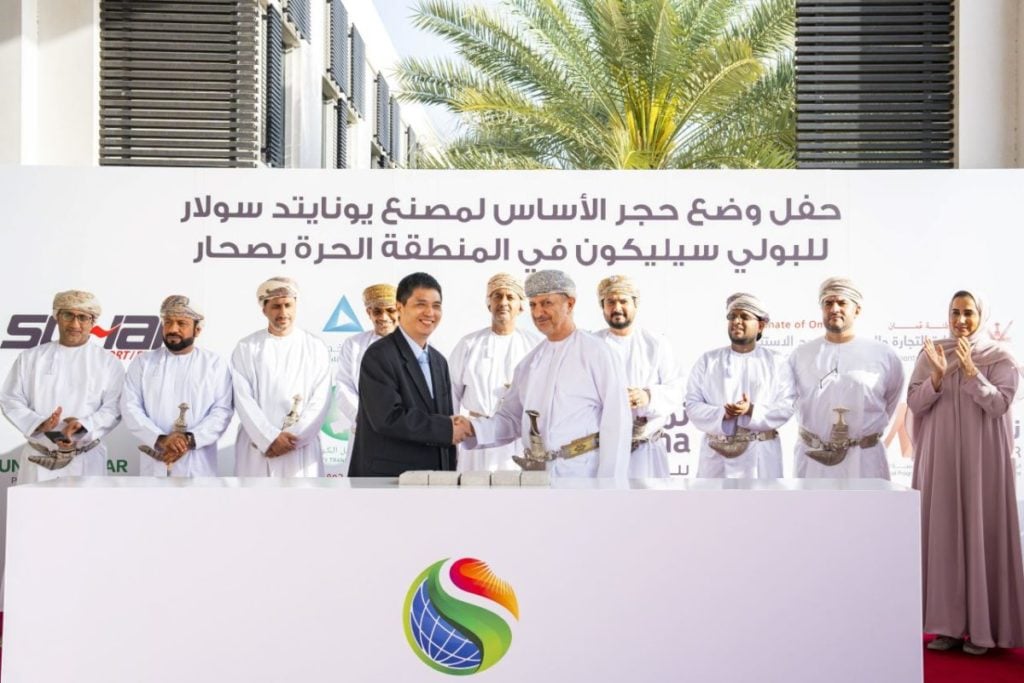
Solar company United Solar Holding has broken ground on the construction of Middle East’s first polysilicon factory, in Oman.
With an annual production capacity of 100,000 tons and an investment of US$1.35 billion, the facility is expected to be operational in 2025.
Unlock unlimited access for 12 whole months of distinctive global analysis
Photovoltaics International is now included.
- Regular insight and analysis of the industry’s biggest developments
- In-depth interviews with the industry’s leading figures
- Unlimited digital access to the PV Tech Power journal catalogue
- Unlimited digital access to the Photovoltaics International journal catalogue
- Access to more than 1,000 technical papers
- Discounts on Solar Media’s portfolio of events, in-person and virtual
Or continue reading this article for free
United Solar Holding lay the foundation stone for the polysilicon factory in the northern port of Sohar, which aims to attract other upstream components of the solar value chain to Sohar’s Port and Freezone.
The facility’s location will offer good connections to regional markets, as well as the US, with whom Oman has a free trade agreement. In a guest post last December, industry advisory company Clean Energy Associates (CEA) highlighted the disparities of developers announcing a number of module assembly plants in the US, but a lack of announcements made for ingot, wafer and polysilicon manufacturing capacity.
The construction of a new polysilicon facility outside China comes at a time when the polysilicon market could see many Chinese producers out of business in 2024. This is due to the overcapacity of polysilicon expansion by some of the largest producers – among them Chinese solar manufacturer Tongwei – according to analysis from industry research firm Bernreuter Research in November 2023.
Furthermore, polysilicon exports to China have fallen to their lowest levels since 2011, as non-Chinese polysilicon producers shipped higher volumes to Southeast Asia, in part as a response to the US’ passing of new import legislation, primarily the Uyghur Forced Labor Prevention Act (UFLPA) and the anti-dumping and countervailing duty (AD/CVD) tariffs.
